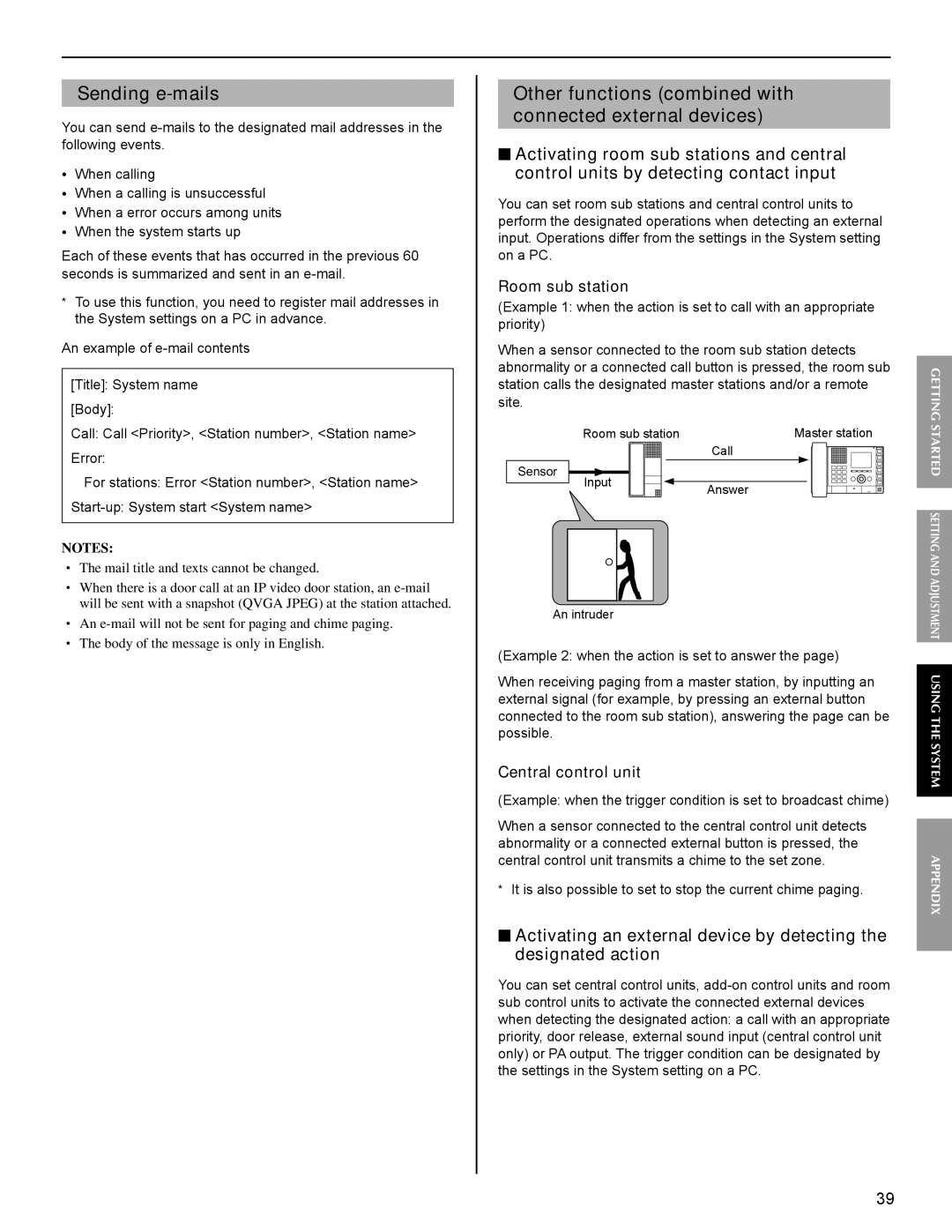
Sending
You can send
•When calling
•When a calling is unsuccessful
•When a error occurs among units
•When the system starts up
Each of these events that has occurred in the previous 60 seconds is summarized and sent in an
*To use this function, you need to register mail addresses in the System settings on a PC in advance.
An example of
[Title]: System name [Body]:
Call: Call <Priority>, <Station number>, <Station name> Error:
For stations: Error <Station number>, <Station name>
NOTES:
•The mail title and texts cannot be changed.
•When there is a door call at an IP video door station, an
•An
•The body of the message is only in English.
Other functions (combined with connected external devices)
■Activating room sub stations and central control units by detecting contact input
You can set room sub stations and central control units to perform the designated operations when detecting an external input. Operations differ from the settings in the System setting on a PC.
Room sub station
(Example 1: when the action is set to call with an appropriate priority)
When a sensor connected to the room sub station detects abnormality or a connected call button is pressed, the room sub station calls the designated master stations and/or a remote site.
Room sub station | Master station |
| Call |
Sensor |
|
Input | Answer |
|
An intruder
(Example 2: when the action is set to answer the page)
When receiving paging from a master station, by inputting an external signal (for example, by pressing an external button connected to the room sub station), answering the page can be possible.
Central control unit
(Example: when the trigger condition is set to broadcast chime)
When a sensor connected to the central control unit detects abnormality or a connected external button is pressed, the central control unit transmits a chime to the set zone.
*It is also possible to set to stop the current chime paging.
■Activating an external device by detecting the designated action
You can set central control units,
GETTING STARTED SETTING AND ADJUSTMENT USING THE SYSTEM
APPENDIX
39
